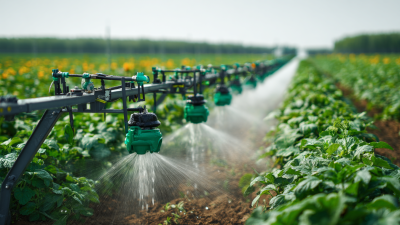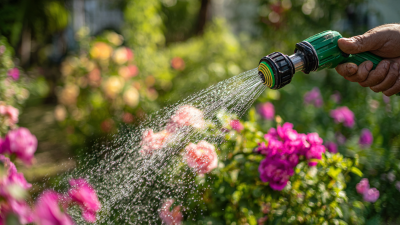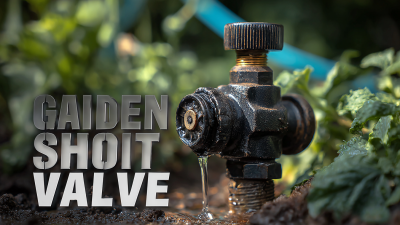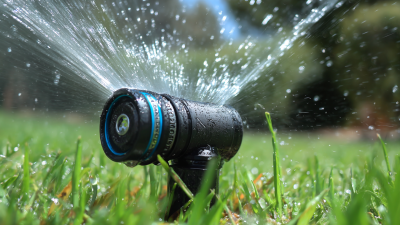Selecting the right Agricultural Water Spray Gun is crucial for maximizing crop yield and water efficiency in farming operations. According to a report by the Food and Agriculture Organization (FAO), efficient water usage is critical, as agriculture accounts for approximately 70% of global freshwater withdrawals. This makes the choice of irrigation equipment, such as spray guns, pivotal in promoting sustainable agricultural practices. With advancements in technology, modern Agricultural Water Spray Guns offer various features, including adjustable nozzle settings and pressure control, allowing farmers to tailor their watering methods to specific crop needs. A study conducted by the Irrigation Association highlights that utilizing the appropriate spray gun can improve water distribution uniformity by up to 30%, significantly enhancing the effectiveness of irrigation efforts. Thus, understanding the different types and functionalities available in the market is essential for farmers looking to invest in the best tools for their unique farming needs.
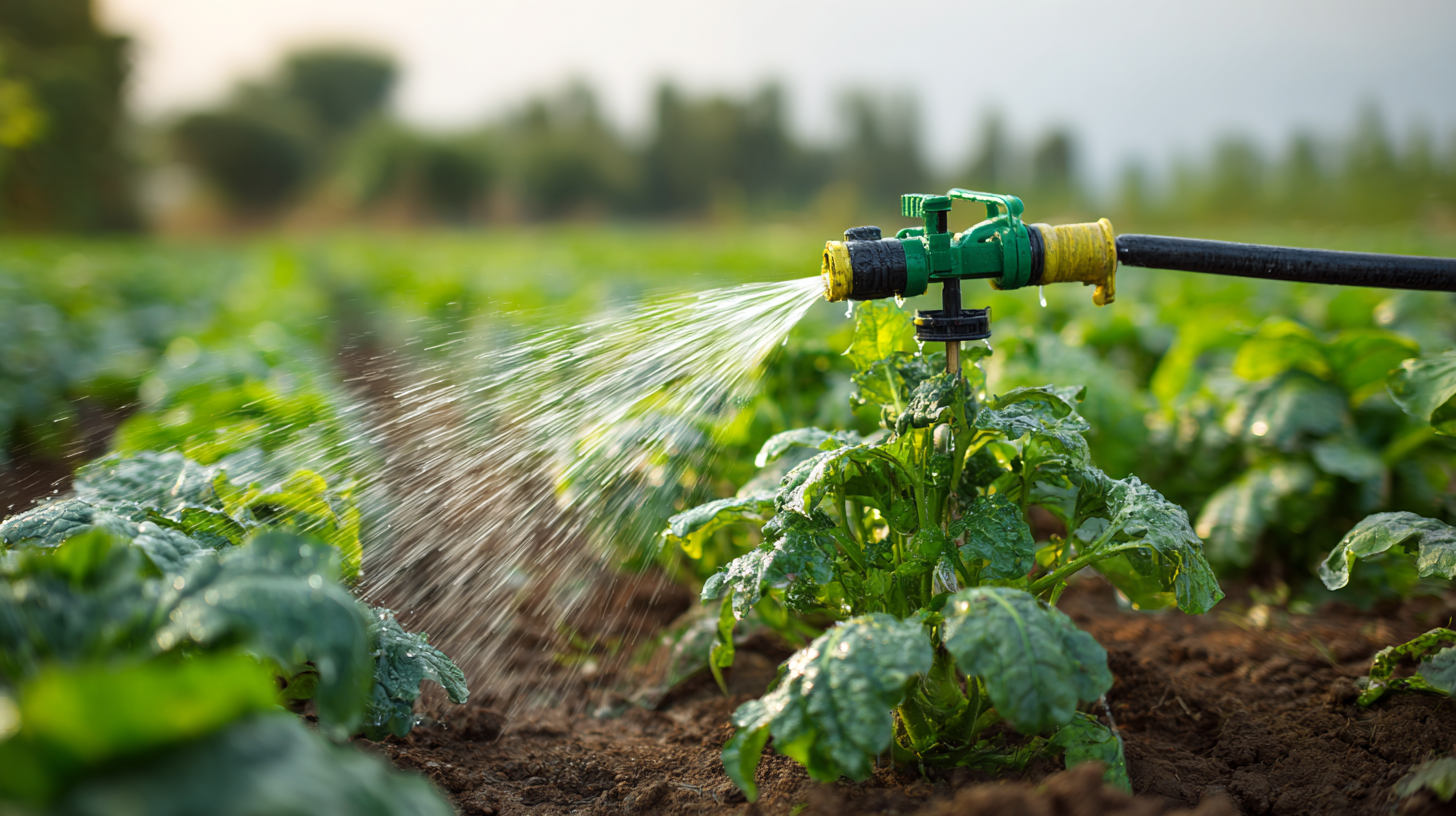
When selecting an agricultural water spray gun, several key factors influence its efficiency in modern farming. Firstly, the design and construction materials play a critical role. A spray gun made from durable materials will withstand harsh elements, reducing the need for frequent replacements. Additionally, ergonomic designs enhance user comfort and enable precise control, crucial for effective water distribution.
Another important consideration is the nozzle type and spray pattern. Different crops require varying levels of water and coverage. A versatile spray gun with adjustable nozzles allows farmers to customize the spray pattern according to specific agricultural needs. Furthermore, the pressure settings provided by the spray gun can greatly impact water delivery and efficiency. Higher pressure may ensure thorough coverage, but it's essential to find a balance to prevent soil erosion and water wastage, optimizing the use of water resources for better crop yields.
When selecting an agricultural water spray gun, it's essential to understand the various types available and their specific applications in different cropping systems. There are primarily three categories of spray guns: handheld, backpack, and tractor-mounted. Handheld spray guns are suitable for small-scale farming and targeted applications, allowing for precision in watering and pest control. According to the USDA, nearly 40% of small farms utilize handheld sprayers due to their versatility and ease of use.
Backpack spray guns, on the other hand, cater to wider coverage areas, making them ideal for medium-scale operations. Research indicates that farmers using backpack sprayers can increase their efficiency by up to 30%, especially in row crops where larger areas need frequent spraying. Moreover, tractor-mounted spray guns offer high-volume spraying for large farms, allowing for automation and time-saving benefits. These systems can handle large volumes of liquid, thus facilitating rapid and effective crop treatment.
Tips for choosing the right spray gun involve considering the specific needs of your crops. Assess the size of your fields and the types of crops being cultivated. Additionally, ensure compatibility with the pesticide or nutrient solutions you plan to use, as some spray guns are designed for particular chemicals. Always factor in the maintenance of equipment—regular cleaning and servicing can extend the lifespan of your spray gun and optimize its performance.
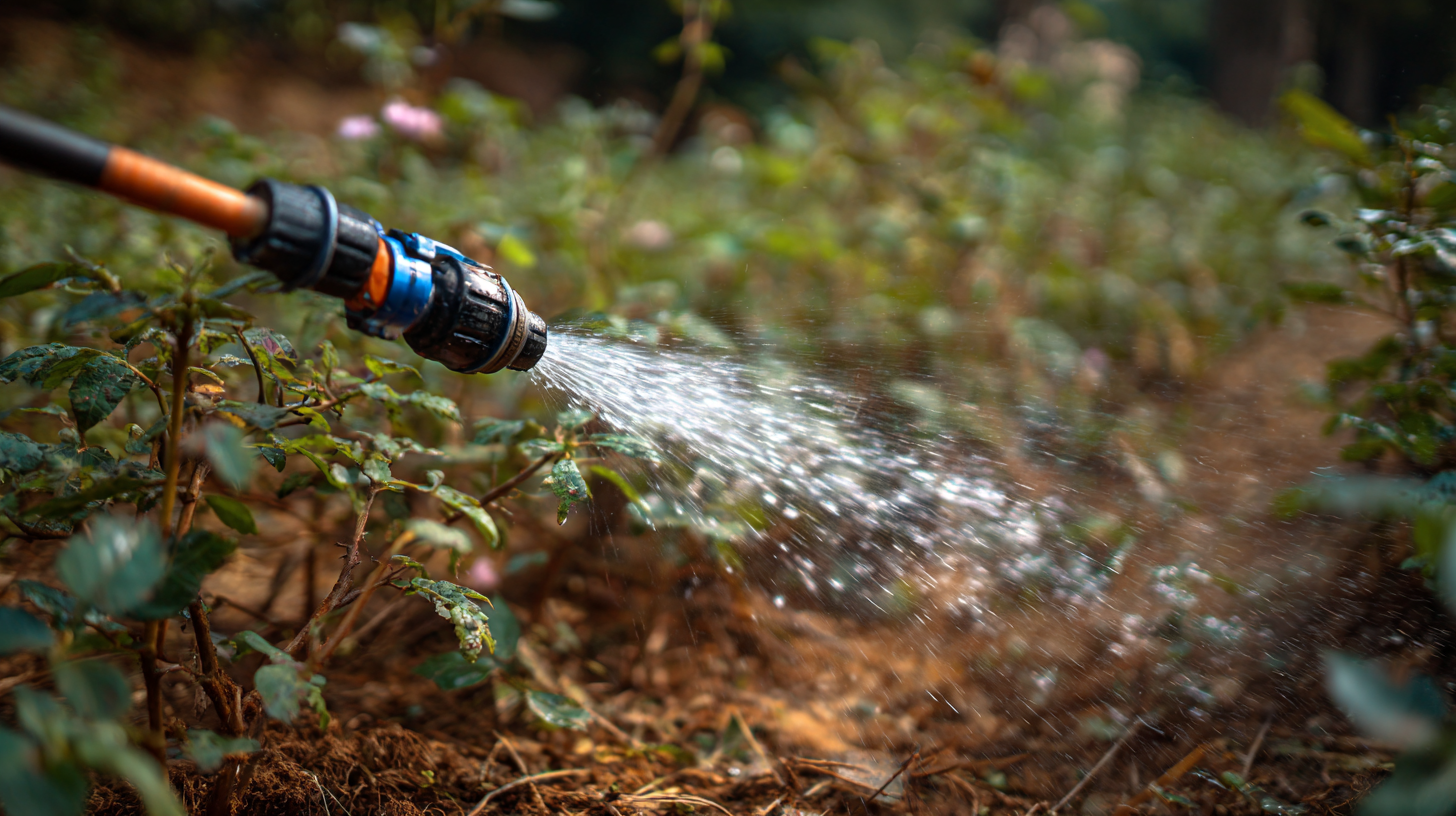
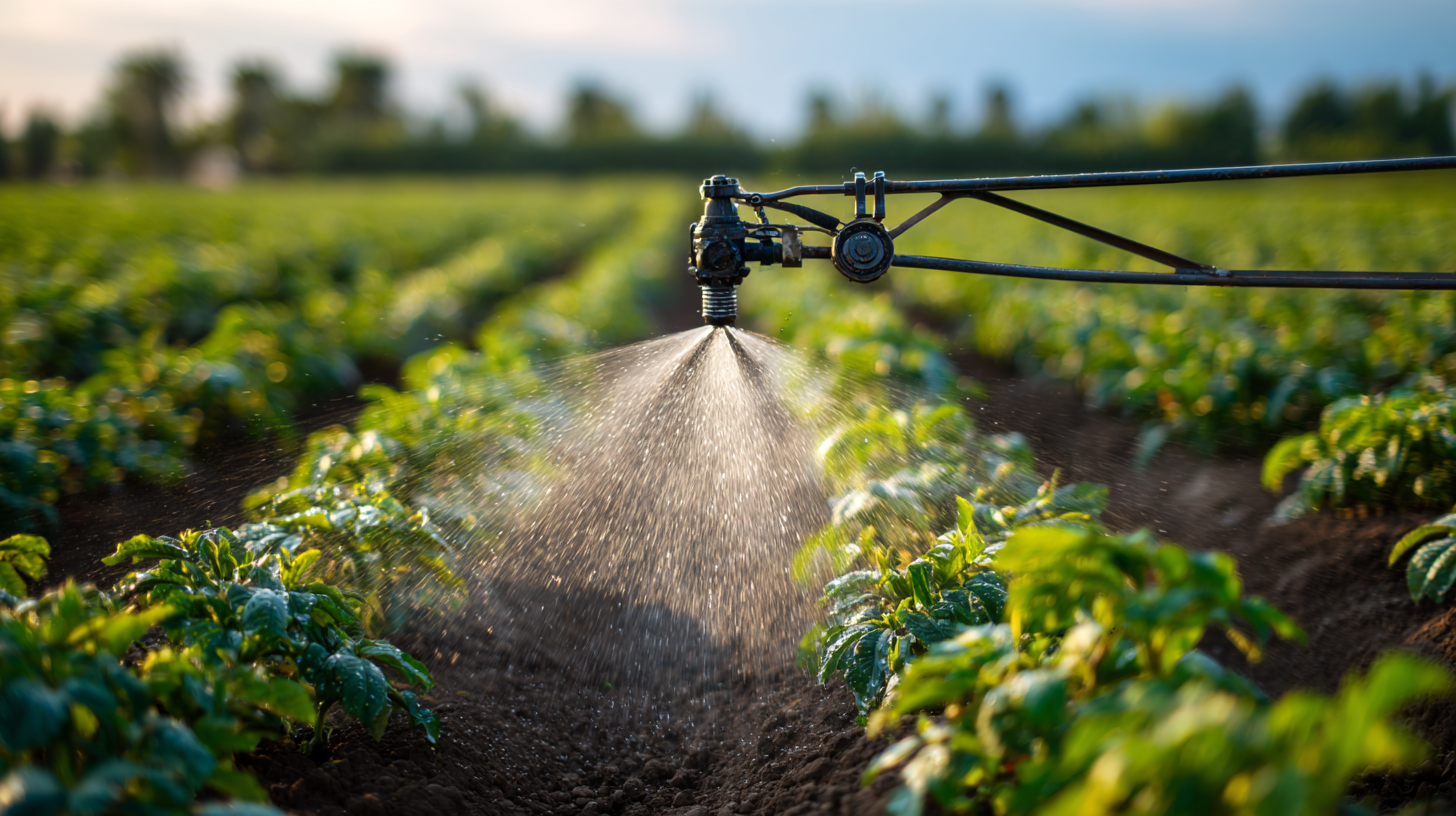 When selecting the ideal agricultural water spray gun, understanding the interplay of pressure and flow rate is crucial. Pressure determines how far and hard the water is ejected, while flow rate influences the volume of water being dispensed over time. A high-pressure spray gun might be necessary for tasks such as cleaning or reaching elevated crops, whereas a lower pressure could be suitable for delicate plants that require gentle watering.
When selecting the ideal agricultural water spray gun, understanding the interplay of pressure and flow rate is crucial. Pressure determines how far and hard the water is ejected, while flow rate influences the volume of water being dispensed over time. A high-pressure spray gun might be necessary for tasks such as cleaning or reaching elevated crops, whereas a lower pressure could be suitable for delicate plants that require gentle watering.
Tips: Always consider the specific requirements of your crops! If your farm includes a variety of plants, opt for a spray gun that allows you to adjust the pressure easily. Additionally, if you’re working on larger fields, prioritize a model that offers a higher flow rate for efficiency.
Moreover, it’s essential to evaluate the compatibility of the spray gun with your existing equipment. Ensure that the hose fittings match and that it can handle the water source pressure. A spray gun with adjustable nozzles can provide flexibility for different tasks, allowing you to seamlessly transition from watering seedlings to cleaning farm equipment without needing multiple tools.
When selecting an agricultural water spray gun, the material durability of the equipment should be a top priority. High-quality spray guns are typically constructed from materials such as brass, stainless steel, or heavy-duty plastic, which offer resistance to corrosion and wear. These materials not only ensure longevity but also help maintain the spray gun's functionality under varying weather conditions and exposure to chemicals often found in fertilizers and pesticides. Choosing a spray gun made from durable materials can result in fewer replacements and greater cost savings over time.
In addition to material durability, regular maintenance plays a critical role in the longevity of your spray equipment. Simple practices, such as cleaning the nozzle after each use to prevent clogs and regularly checking for leaks, can significantly extend the life of your spray gun. It's also important to store the equipment in a dry place and protect it from extreme temperatures. By prioritizing both durable materials and proper maintenance, farmers can ensure that their agricultural water spray guns remain reliable and effective in meeting their watering needs.
| Feature | Material | Durability Rating | Maintenance Frequency | Price Range |
|---|---|---|---|---|
| Nozzle Type | Brass | High | Annual | $30 - $50 |
| Handle Design | Plastic | Medium | Every 6 months | $20 - $35 |
| Spray Pattern | Aluminum | High | Annual | $45 - $70 |
| Weight | Steel | Very High | Every 2 years | $60 - $90 |
| Hose Length | Rubber | Medium | Every year | $15 - $25 |
The integration of smart technology into agricultural spray guns is revolutionizing the precision farming landscape. Advanced features like automated flow control, GPS integration, and IoT connectivity are enhancing spraying accuracy and reducing waste. According to a report by MarketsandMarkets, the global smart agriculture market is projected to reach $20.3 billion by 2025, growing at a CAGR of 24.8%. This growth is fueled by the increasing demand for efficient farming practices that conserve resources while maximizing crop yields.
Moreover, smart spray guns equipped with sensors can collect real-time data on soil moisture and crop health, enabling farmers to make informed decisions on when and where to spray. A study published by ResearchGate highlights that precision irrigation technologies, including smart spray systems, can reduce water usage by up to 40% and increase crop productivity by 20-25%. As farmers strive for sustainability and efficiency, the adoption of these innovative tools becomes essential in meeting both economic and environmental goals.
This chart compares five key features of agricultural water spray guns that are essential for precision farming: Pressure, Flow Rate, Weight, Durability, and Price. High ratings in these areas indicate better performance and efficiency for farming needs.
